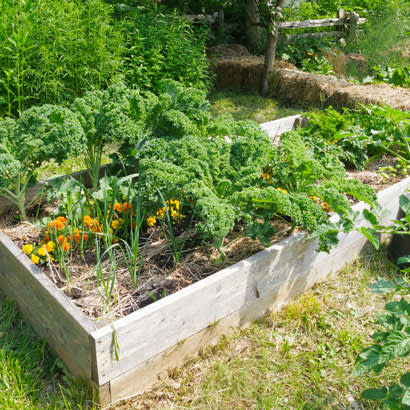
Does your neighborhood need a little more greenery? Are you aching for a place to nurture your green thumb? A community garden could be the answer.
Community gardens are a wonderful way to not only green up the neighborhood, but also to bring neighbors together. Gardens are gathering places — communal backyards where we can gather with neighbors to savor the taste of a sun-warmed tomato. They help kids and older adults alike get outside to enjoy the sunshine, and they make fresh, healthy food accessible in food deserts. Through programs like Plant a Row for the Hungry, community gardens can also serve as a means of giving back.
If you’re considering starting a community garden in your neighborhood, these five tips will get you started.
1. Secure a Long-Term Site
Get creative when choosing a garden site. Do you or someone you know have a spacious backyard? Perhaps there’s a church, school, park or community center in the neighborhood with land to spare, or a vacant lot that’s an eyesore. However, understand that not all land makes a suitable garden site. A community garden needs full sun, water for irrigation and drinking, restrooms, parking and workable soil. In urban locations especially, garden organizers should perform a soil test on prospective lots to test for contaminants.
Get a written lease for the site you choose. It takes time to develop a garden; seek at least a three-year lease so your labor and financial investments aren’t in vain. A longer lease also allows you to plant perennial crops, which may not yield for a year or more. The Community Garden Toolkit from Louisville Grows offers a sample community garden lease along with other helpful information for garden organizers.
2. Decide on a Structure
Community gardens come in several forms. In an allotment garden, each gardener has their own plot to work and plant as they wish. They may pay rent for their lot, receive a lot in exchange for volunteer hours, or receive a lot at no cost. Allotment gardens are a good fit for experienced gardeners who want to grow specific plants but don’t have space at home.
Allotment gardens aren’t the only form of community garden. As HomeAdvisor explains, “One option you have for a community garden is a cooperative project, where neighbors and other volunteers contribute to maintenance and upkeep." In a cooperative garden, both labor and harvest are shared, making it a good fit for novice gardeners and those who want a social experience. Some cooperative gardens donate their harvest to local food banks.
3. Secure Funding
Starting a community garden costs money. Ideally the land is free, but the cost of irrigation, tools, storage and bulk soils adds up to a hefty sum. Urban plots and overgrown sites may also require funds for cleanup. Know how you’ll pay for garden expenses, whether through a sponsor organization, a philanthropic donor or fees assessed to gardeners.
4. Know Your Growing Practices
Will your garden use conventional fertilizers and pesticides, organic fertilizers and pesticides, or rely on sustainable practices like integrated pest management and composting? Even in an allotment garden, neighbors’ choices affect each other. Therefore, it’s important to have an established set of growing practices that everyone can live with.
5. Communicate with Members
Decide how your community garden will be governed. You may have one person serve as garden manager, or opt for a democratic decision-making process. Decide if you’ll host monthly meetings or, if not, how you’ll communicate with garden members. An email newsletter is a great option for keeping neighbors in the loop and generating excitement, but someone has to run it!
This is also the time to settle on garden rules. Rules should detail hours of operation, tool use, growing practices, member responsibilities and a code of conduct. The American Community Garden Association has compiled a sample list of garden rules to assist organizers.
Community gardens are wonderful neighborhood resources. Managing a successful garden requires cooperation among neighbors who are invested in the community. Before you start going down this list, reach out to your neighbors to find collaborators for your community garden project.
Karen Weeks is the creator of Elder Wellness, a resource for older adults who wish to keep their minds, bodies and spirits well.

